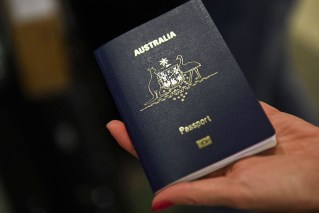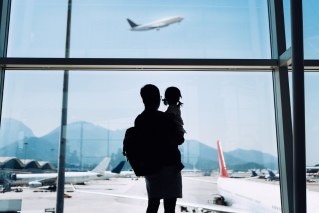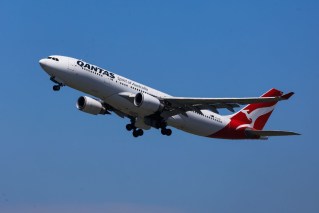‘Dangerous ground’: How Qantas’ push to reopen Australia’s domestic borders could backfire

Qantas is ramping up pressure on state premiers to reopen Australia’s domestic borders, as the consumer and competition watchdog airs concerns over the post-pandemic future of flying.
With its business model smashed by COVID-19, Qantas is waging a public relations campaign against domestic border closures, running full-page ads in major newspapers across the country this week, with ad space donated by Nine and News Corp.
“Show you support for safely opening our domestic borders,” the ad implored, arguing that “a shared framework should determine when our borders open again”.
Qantas has also started an online petition to “safely open borders”, which has garnered more than 40,000 signatures ahead of a national cabinet meeting on Friday.
But Deakin University marketing expert Michael Callaghan said that Qantas’ involvement in the political battle over borders is a desperate move that could damage the iconic brand.

More than 40,000 people have signed Qantas’ petition to reopen borders. Photo: Qantas
“From the point of view of corporate social responsibility it is very dangerous ground for a corporation like Qantas to start interfering directly in the politics of a situation,” Dr Callaghan said.
Qantas risks “isolating themselves from a large proportion of the population that will see their actions as being partisan on the side of the federal government,” he said.
“If we’re talking about corporations being responsible, governments being responsible, individuals being responsible, it’s the health implications that should always come first.”

Qantas boss Alan Joyce is lobbying for a national framework for state borders. Photo: Getty
Monash Business School aviation expert and co-author of Up in the Air Greg Bamber backed Qantas’ call for a national framework for state border closures.
“We do need a framework for what will allow them to open, to give certainty to people who need to travel for various reasons as well as the airlines and the tourism industry. Closing state borders is too blunt an instrument,” Professor Bamber said.
Keeping state borders closed “may be unconstitutional” and “has many unintended consequences for people, families and businesses,” he added.
No help for stranded Aussies
While Prime Minister Scott Morrison is pushing to increase the number of Australians who can return home on commercial flights by around 2000 a week, Qantas chief executive Alan Joyce poured cold water on suggestions that the nation’s flag carrier could assist.

Australians stranded overseas won’t be getting home on a Qantas plane. Photo: Getty
On Thursday, Mr Joyce refused to budge on his decision to ground all Qantas international flights.
“The economics don’t work,” he told ABC radio.
Dr Callaghan slammed Mr Joyce’s decision to refuse to help stranded Australians get home.
“It’s a financial decision … but people in his position have a moral obligation to act in a socially responsible manner, and I believe that’s not what this decision reflects,” he said.
ACCC sees a bumpy ride for air travel
The Australian Competition and Consumer Commission has aired concerns over the ongoing impact of COVID-19 on air travel for consumers and the economy.
On Thursday, the ACCC released its first in a series of reports on the impact of the coronavirus pandemic on the nation’s airline industry.
The pandemic has created “some of the most difficult market conditions in Australian aviation history”, ACCC Chair Rod Sims said.

Australia’s airline industry is yet to recover from the COVID-19 crisis. Image: ACCC
“Australia’s domestic airline industry over the next few years may look quite different to the one that went into 2020,” Mr Sims warned.
It is “critical that when the industry starts scaling up domestic flying, any potential damage to competition is identified quickly and acted on”, he said.
The decline of Virgin Australia does not bode well for the future of domestic air travel, Professor Bamber warned.
“Qantas is very powerful. This reflects its legacy as a former government-owned business. Hence it will not be easy for the new Virgin Australia to compete effectively with it,” he said.
Consumers should be concerned about the future of flying, in terms of there being enough regulation and competition to keep fares fair.”
The ACCC was directed by Treasurer Josh Frydenberg in June to monitor the prices, costs and profits of Australia’s domestic airline industry and provide quarterly reports to inform government policy for the next three years.
“A lot has changed since the Treasurer directed us to take on this new role in June,” Mr Sims said.
“Domestic airline travel was expected to be on its way to returning to more regular operations by now, but infection spikes in some states and tighter border restrictions have delayed the recovery.”








